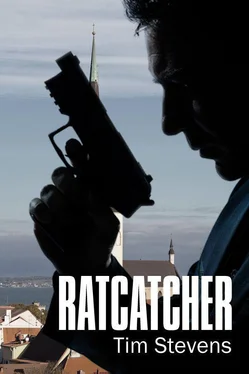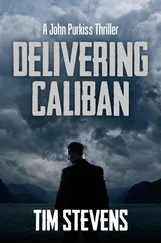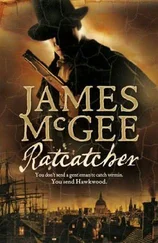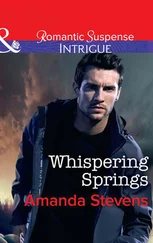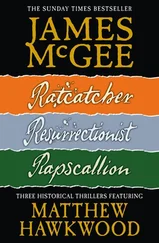Tim Stevens - Ratcatcher
Здесь есть возможность читать онлайн «Tim Stevens - Ratcatcher» весь текст электронной книги совершенно бесплатно (целиком полную версию без сокращений). В некоторых случаях можно слушать аудио, скачать через торрент в формате fb2 и присутствует краткое содержание. Жанр: Триллер, на английском языке. Описание произведения, (предисловие) а так же отзывы посетителей доступны на портале библиотеки ЛибКат.
- Название:Ratcatcher
- Автор:
- Жанр:
- Год:неизвестен
- ISBN:нет данных
- Рейтинг книги:5 / 5. Голосов: 1
-
Избранное:Добавить в избранное
- Отзывы:
-
Ваша оценка:
- 100
- 1
- 2
- 3
- 4
- 5
Ratcatcher: краткое содержание, описание и аннотация
Предлагаем к чтению аннотацию, описание, краткое содержание или предисловие (зависит от того, что написал сам автор книги «Ratcatcher»). Если вы не нашли необходимую информацию о книге — напишите в комментариях, мы постараемся отыскать её.
Ratcatcher — читать онлайн бесплатно полную книгу (весь текст) целиком
Ниже представлен текст книги, разбитый по страницам. Система сохранения места последней прочитанной страницы, позволяет с удобством читать онлайн бесплатно книгу «Ratcatcher», без необходимости каждый раз заново искать на чём Вы остановились. Поставьте закладку, и сможете в любой момент перейти на страницу, на которой закончили чтение.
Интервал:
Закладка:
He kept his gaze on the two men. Abby was in his line of sight, nearer, out of focus. He knelt, laid the gun on the ground, folded his hands on top of his head, and began to walk.
The two men raised their guns to shoulder height, both adopting the Weaver stance, free hands cupping the ones that held their pistols. Purkiss watched them over the tousle of Abby’s hair.
As if obeying some unseen choreographer, Purkiss and Abby timed their progress so that they reached one another at what appeared to be the midpoint between the two men and Elle. For a moment Purkiss took his gaze off the two men with the guns and looked down at Abby’s face. He realised she’d been trying to get his attention. Her eyes were flashing frantically above the gag, and he could see the dirty material billowing and sucking as she tried to articulate words. Low sounds came from her throat.
Just as he passed her he lowered his head to catch what she was saying, but it was no good, the gag was too secure. He whispered, ‘Tell Kendrick.’
Then she was out of sight behind him.
Later he had time, plenty of it, to reflect on what happened, on whether he could have averted it in some way with a shouted instruction, a warning of some sort. Whether, indeed, he was responsible for it by omission. But as the men shifted their stance and tightened their grips on their weapons and he drew close enough to see the dilation of their pupils in the darkness, all Purkiss was thinking of were the chances of not only taking down two armed men who were fully expecting him to make such a move, but also surviving the assault from whatever backup they had waiting in the shadows.
Signals were useful things when preparing for a combat situation. The fall of the drop of sweat that had been gathering in the armpit, the next cry of the owl off in the trees, the final chime of a clock striking the hour: all could provide a focus point for the launching of an attack. This time he was waiting for Elle’s shout, the sign that Abby had reached the point of safety.
And Elle’s voice came, high and clear against the thrumming of the rain, though it wasn’t the word they’d agreed — now — but rather one that while sounding similar carried an altogether more terrible significance.
‘ No.’
Thirty
Purkiss had once read about the intriguing hypothesis that time was an entirely human construct, and did not, in any valid sense, exist. Instead, what people regarded as units of time — minutes, seconds, moments or instants — were really quantum states that happened to be stacked up alongside one another in space (which did exist, provably), like the infinitesimally altered series of pictures that when run together tricked the human eye and became a cartoon.
He’d found the concept a tricky one to get to grips with. He came close to grasping it during the events that followed Elle’s cry. The free flow of time became a series of snapshot images that engrained themselves on his memory.
In the first picture, the two men immediately in front of him were bracing their bent legs and sighting horizontally down their arms, their eyes widened slightly, ready to fire imminently; but one of the men had his gaze fixed not on Purkiss’s face but on a point past his left shoulder.
In the next picture Purkiss, whose head was now turned slightly to the left, was looking at a human figure in the sparse trees over to his left, a black-clad man with a rifle gripped in his hands, not Kendrick. In the corner of his vision was Abby’s small figure.
In the third picture the man among the trees had lifted the rifle and was taking aim at a point off to Purkiss’s left, while a second man beside him held a pistol in a two-handed grip and aimed in the same direction. Still on the periphery of Purkiss’s visual field, Abby’s leg was extended behind her in the first thrust of a running movement.
Picture number four: Purkiss was in the middle of a lunge towards the trees and the men among the trees were larger and one, the man with the handgun, was facing Purkiss, his mouth an O of surprise and anger, his gun arm lagging and still pointed away. In the left corner of the visual field Abby was several yards further with her run. On the right, one of the two gunmen towards whom Purkiss had been walking was airborne, diving towards him at an angle to head him off.
In the fifth picture, Purkiss was half-turned towards the man diving from his right, his fist inches past the man’s jaw. The man’s head was snapped sideways, while among the trees the men were looking back in Abby’s direction.
In the sixth picture Purkiss was almost at the trees. The man with the rifle was ducking and looking askance at the other man, the one with the handgun in the two-handed grip, whose head was shearing in a fan of blood and bone.
In the seventh picture Purkiss was on the ground, felled, and looking with his head to one side along the expanse of lawn and path away from the tower. Far on the edge of the pool of light was Kendrick, tiny and beetly at this distance, his mouth stretched wide, the flash from his gun’s muzzle a bright star above his hands.
In the eighth picture Purkiss, still on the ground, saw beyond the towering forest of lawn grass Abby’s shape suspended in the air, legs buckled and hands still trussed behind her.
In the ninth and final picture: the same landscape of grass blades made huge by nearness, but no people.
No Abby.
*
The Jacobin wanted to seize him by the lapels.
‘What are you doing?’
Kuznetsov ignored him, shouted an order. Two of the men, running at a crouch, moved in, the others provising covering fire.
‘Shoot him there.’
Again Kuznetsov ignored him. The Jacobin backed away several steps around the curve of the tower, away from the crashing of the guns, the screaming. He kept his eyes on the tableau. Elle was out of sight, having retreated over the crest of the hill, driven back by the barrage of gunfire. The man, Purkiss’s other friend, was somewhere over to the right, lost in the trees. The Jacobin had seen the man’s shot take down Kuznetsov’s man, had watched the concentrated fire sent in return.
The girl, Abby, had been lifted impossibly high into the air by the burst from Kuznetsov’s man’s rifle, so high that a ripple of awe, of disbelief, had spread among even these battle-hardened men. The sound of her body hitting the ground had been audible even through the gunfire and the rain. She hadn’t moved after that.
The rifleman had shown himself too soon. Yes, the girl had had to die, they’d agreed on that. She couldn’t be allowed to reveal what she knew, had seemed to be trying to pass the information on to Purkiss himself when she passed him during the exchange. But if they’d waited until they had Purkiss, they could have taken her out with ease, then dealt with Elle and Purkiss’s other sidekick at their leisure. Instead, Elle had shouted a warning, having seen the rifle emerge from the trees. Purkiss had tried heroics, had managed to knock down one of the gunmen.
They should have shot him where he lay. What was to be gained by taking him prisoner? The Jacobin stared at Kuznetsov’s back, thinking of Churchill’s description of Russia: a riddle wrapped inside an enigma .
The roaring in his ears continued, even when he closed his mouth. He realised it wasn’t him but the aftershock of the gunfire. He tried to move his arms, but they were pinioned behind him, something slicing into his flesh. He couldn’t move his legs because he was kneeling with his torso forced down over his lap and a gun muzzle at the back of his neck. His back hurt from the blow that had dropped him.
He raised his head just enough to see the dark shape on the grass.
Читать дальшеИнтервал:
Закладка:
Похожие книги на «Ratcatcher»
Представляем Вашему вниманию похожие книги на «Ratcatcher» списком для выбора. Мы отобрали схожую по названию и смыслу литературу в надежде предоставить читателям больше вариантов отыскать новые, интересные, ещё непрочитанные произведения.
Обсуждение, отзывы о книге «Ratcatcher» и просто собственные мнения читателей. Оставьте ваши комментарии, напишите, что Вы думаете о произведении, его смысле или главных героях. Укажите что конкретно понравилось, а что нет, и почему Вы так считаете.
